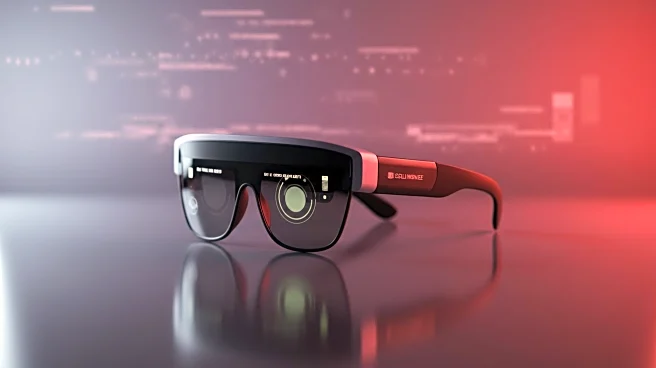What's Happening?
Meta plans to release its first HUD glasses, codenamed Hypernova, featuring a monocular display visible only to the right eye. The decision to use a single display is explained by Meta's CTO Andrew Bosworth, who cites cost efficiency and structural simplicity as key reasons. Monocular displays are lighter and more affordable, avoiding the need for disparity correction required in binocular displays. The glasses will display time, weather, notifications, and more, controlled by gestures from a neural wristband.
Why It's Important?
Meta's decision to use a monocular display in its HUD glasses highlights the company's focus on cost-effective solutions in wearable technology. By reducing the complexity and cost associated with binocular displays, Meta aims to make smart glasses more accessible to consumers. This approach could influence the broader market for augmented reality devices, encouraging other companies to explore similar cost-saving measures. The glasses' functionality, including real-time information display, represents a step forward in integrating technology into everyday life.
What's Next?
Meta plans to sell the monocular HUD glasses for $800, with potential announcements at Meta Connect 2025 in September. As the market for smart glasses expands, costs for components like projectors and waveguides may decrease, enabling future models to incorporate binocular displays. Meta's long-term plans include releasing a binocular successor product in 2027, which could offer enhanced AR capabilities.









